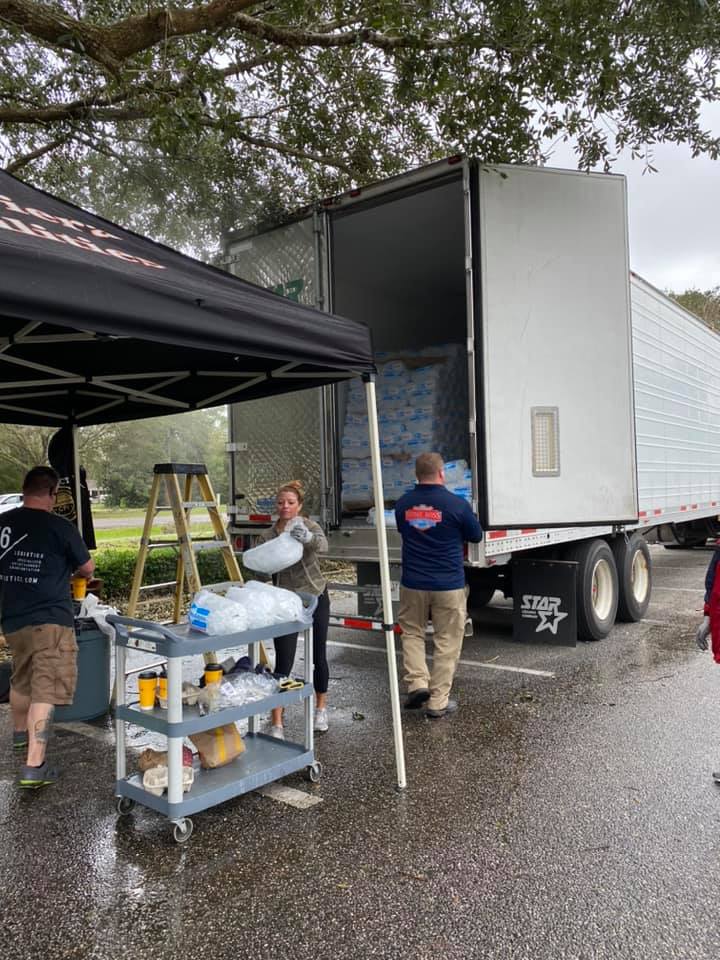FOLEY – Local fire departments and other emergency services are working on a mutual aid system that could get relief to first responders and residents sooner after disasters such as hurricanes.
Foley Fire Chief Joey Darby said aid has sometimes been slow to reach Foley and other south Baldwin cities after storms.
“Immediately after Hurricane Sally, quite frankly before the wind quit blowing, Orange Beach Gulf Shores in particular, reached out as well. We started requesting resources from other parts of the state,” Darby told Foley City Council members. “We knew right off the bat, we were overwhelmed. There was no doubt we were not going to be able to respond. Quite frankly, we all got hit so hard during the storm.”
Darby said he will bring a proposed resolution to the City Council for consideration at an upcoming meeting.
Darby said that under the current system, local agencies request resources through the Alabama Emergency Management Agency. Those orders have to be processed before the request is assigned and resources deployed.
He said that in the past some supplies took several days to reach the area.
“In Hurricane Sally, two days after the fact, when resources came to our area to assist, which was very much appreciated, but they were late to the game and quite frankly, they weren’t the right resources when they got here,” Darby said.
Alabama fire chiefs have been working since the 2020 storm to find a way to pre-deploy supplies to get resources where they were needed as soon as possible after a hurricane or other emergency.
Under the plan, each participating agency will agree to share available resources.
“If we know that a hurricane is coming that is potentially catastrophic, we can start to request resources, Darby said. “The information that will be passed through our organization through state EMA so that it gets the right assignment. Then those resources will be pre staged. For example, in our area, we talked about staging resources in the Poarch-Atmore more area. Poarch is very much on board with this, so that in the event of a hurricane by the time the wind settles down, we’ve got valuable resources coming our way that hopefully within an hour and a half, two hours.”
Darby said that while hurricanes hitting the coast are the most likely disaster in which the plan will be needed, other areas of the state could benefit as well.
“If something were to happen, let’s say in the Birmingham area, they may request resources from us,” Darby said. “The catch is it very clearly states that we would only provide resources if they’re available. It doesn’t bind us. There’s no binding agreement here. That says we’re gonna work together mutually if we have things that would benefit other parts of the state. Quite frankly, as we know the likelihood of something happening is greater down here. And all those agencies in that Birmingham metro area, probably understand that but this includes agencies all the way up to the Huntsville area as well.”
Mayor Ralph Hellmich said the plan to share resources is similar to aid agreements used by utility departments following disasters.
“In the power industry, I know Riviera and EMC have this mutual-aid structure,” Hellmich said. “The key is the record keeping for FEMA reimbursement. That’s the big thing, but once that gets set up, it works quite well. They basically exchange across several state areas. But that is a one-time, power-industry type thing. This is going to be a little more broad-based. It’s a good thing.”



